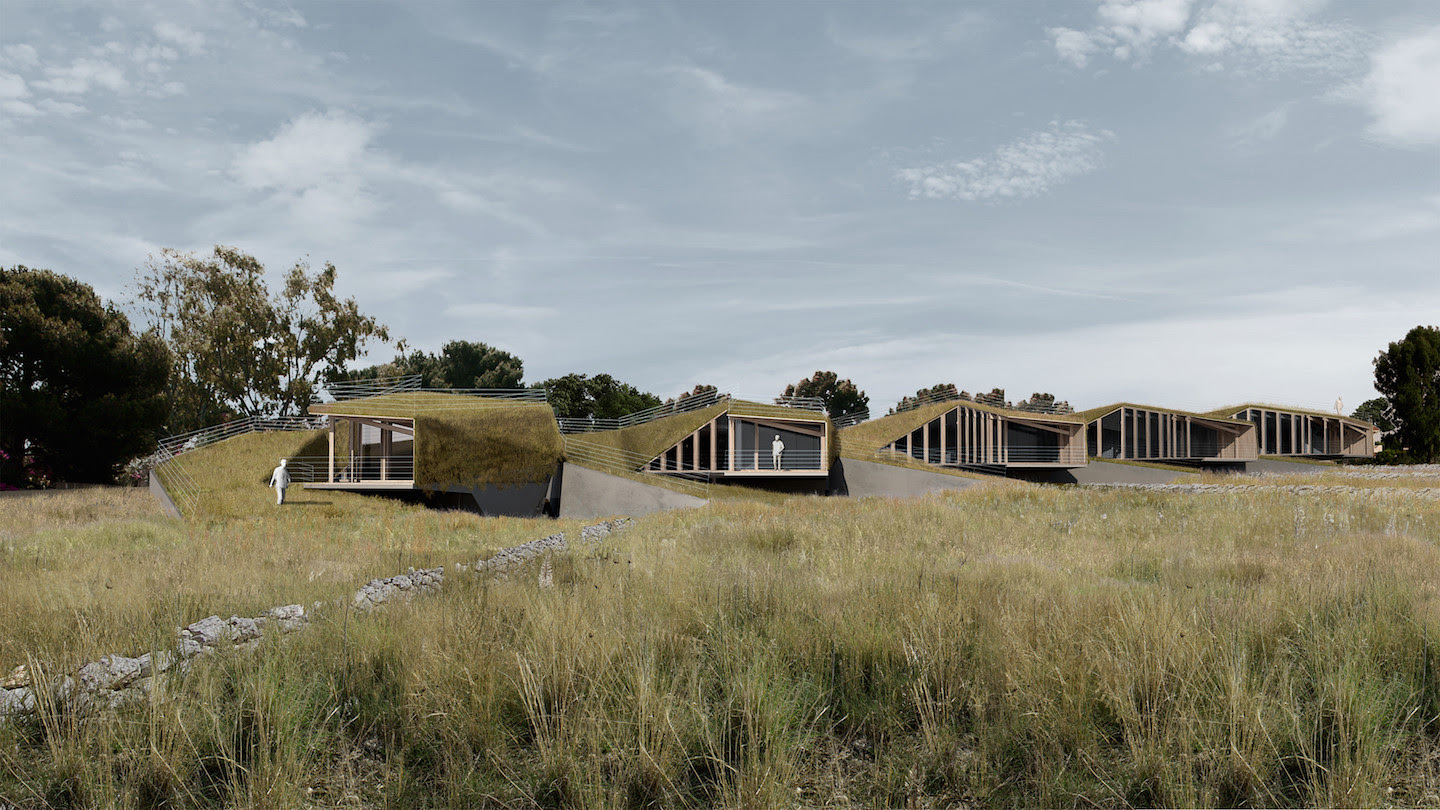Harvard University Graduate School of Design (Harvard GSD) named Polish-born and U.S.-based architect Aleksandra Jaeschke the winner of the 2019 Wheelwright Prize, a USD 100,000 grant to support investigative approaches to contemporary architecture, with an emphasis on travel-based research.
Jaeschke’s winning proposal, UNDER WRAPS: Architecture and Culture of Greenhouses, aims to explore the culture and architecture of greenhouses around the world, focusing on the spatiality of horticultural operations, as well as the interactions between plants and humans across a spectrum of contexts and cultures.
Jaeschke was among three remarkable finalists selected from more than 145 applicants, hailing from 46 countries. The 2019 Wheelwright Prize jury commends finalists Maria Shéhérazade Giudici and Garrett Ricciardi for their promising research proposals and presentations.
“With her pioneering work on greenhouses, Aleksandra Jaeschke reasserts that the field of architecture can and should continue to engage deeply with nature, with horticulture, and with ruralism and the countryside,” says Mohsen Mostafavi, Dean and Alexander and Wiley Professor of Design, Harvard GSD. “As we applaud Aleksandra and look forward to her project, I also want to take this opportunity to congratulate the other two finalists, Maria Shéhérazade Giudici and Garrett Ricciardi, for their outstanding proposals, which made the decision about this year’s award exceedingly challenging for the jury.”
A graduate of Harvard GSD (Doctor of Design, 2018) and the Architectural Association in London (AA Diploma, 2005), Jaeschke is an architect licensed in Italy and an Assistant Professor of Architecture and Sustainable Design at the University of Texas at Austin. She was one of the 2014 Kosciuszko Foundation Fellows and will be the Meadows Foundation Centennial Fellow, at the Center for American Architecture and Design at the University of Texas at Austin, from September 2019 to August 2021. She previously taught at the Woodbury School of Architecture in Los Angeles.
Jaeschke’s interests range from mainstream discourses on sustainability and broader notions of ecology to cross-scalar integrative design strategies and the role of architects in transdisciplinary projects. Her Harvard GSD doctoral dissertation, Green Apparatus: Ecology of the American House According to Building Codes, investigated how building regulations coupled with green building technologies and incentives shape environmentally-driven design and environmental awareness. While at Harvard GSD, she coordinated the project “Turtle Mountain Band of Chippewa Indians Housing Research and Prototype Design,” exploring sustainability as a building-scale issue, and one of embodied energy, transportation, and sourcing of materials. She co-organized the 2016 Doctor of Design Conference “#decoding,” which investigated the impact of codes in mapping of environments, demarcation of legal territories, and operational protocols of logistics and control of the built environment, highlighting the interconnections between design techniques, economic processes, and regulatory mechanisms.
Jaeschke’s Wheelwright proposal, UNDER WRAPS, stems from her fascination with the multifaceted nature of greenhouses and the very act of sharing a roof with plant life. Her goal is to investigate the impact of spatial arrangements and speculate about strategies for a more equitable “greenhouse ruralism” and an engaged “urban (horti)culture”—the former to empower farmers, and the latter to engage urban dwellers in the act of caring for plants, which she calls “our living substrate and the ultimate Other.”
Jaeschke’s intention is to spend extended periods of time in a number of regions with a high concentration of greenhouse agriculture and visit remarkable urban and rural greenhouses that are unique for their singular architecture, adaptive approach to technology, or extraordinary function. She will travel to the Netherlands, Spain, Israel, Morocco, Mexico, and South Korea, and will also visit significant sites in Canada, Singapore, Taiwan, the United Kingdom, Switzerland, and Poland. Her goal is to catalog and compare various greenhouse types, from farm-hoop houses to botanical conservatories; operations, from farming to hospitality; and locations, along a rural-urban transect. Jaeschke also hopes to use her travels to launch collaborative projects.
As with past Wheelwright winners, the USD 100,000 prize is intended to fund two years of Jaeschke’s research travel.
Jaeschke previously practiced at AION, an architectural firm she co-founded and co-directed with Andrea Di Stefano. As part of AION, she managed numerous design workshops and contributed to various publications. She participated in the 27/37 Exhibition of Young Italian Architecture at the Italian Pavilion, Shanghai Expo 2010, and was part of the ARCHITEKTUR! conference series held at the MAXXI Museum in Rome in 2012. In 2013, AION held a solo exhibition, Eco-Machines, in the Wroclaw Museum of Architecture in Poland. In 2011, Jaeschke received the Europe 40 Under 40 Award conferred by the European Centre for Architecture, Art, Design & Urban Studies and Chicago Athenaeum.
Jaeschke follows 2018 Wheelwright Prize winner Aude-Line Dulière, whose Wheelwright project Crafted Images: Material Flows, Techniques, and Uses in Set Design Construction is in its travel-research phase.
Now in its seventh year as an open international competition, the Wheelwright Prize supports travel-based research initiatives proposed by extraordinary early-career architects. Previous winners have circled the globe, pursuing inquiries into a broad range of social, cultural, environmental, and technological issues. The Wheelwright Prize originated at Harvard GSD in 1935 as the Arthur C. Wheelwright Traveling Fellowship, which was established to provide a Grand Tour experience to exceptional Harvard GSD graduates at a time when international travel was rare. In 2013 Harvard GSD opened the prize to early-career architects worldwide as a competition, with the goal of encouraging new forms of prolonged, hands-on research and cross-cultural engagement. The sole eligibility requirement is that applicants must have received a degree from a professionally accredited architecture program in the previous 15 years.
The 2019 Wheelwright Prize jury consisted of Tatiana Bilbao, Loreta Castro Reguera, K. Michael Hays, Eric Höweler, Erik L’Heureux (2015 Wheelwright Prize winner), Mohsen Mostafavi, and Megan Panzano.
For further info, click here.


 Copy Protected by Chetan's WP-Copyprotect.
Copy Protected by Chetan's WP-Copyprotect.